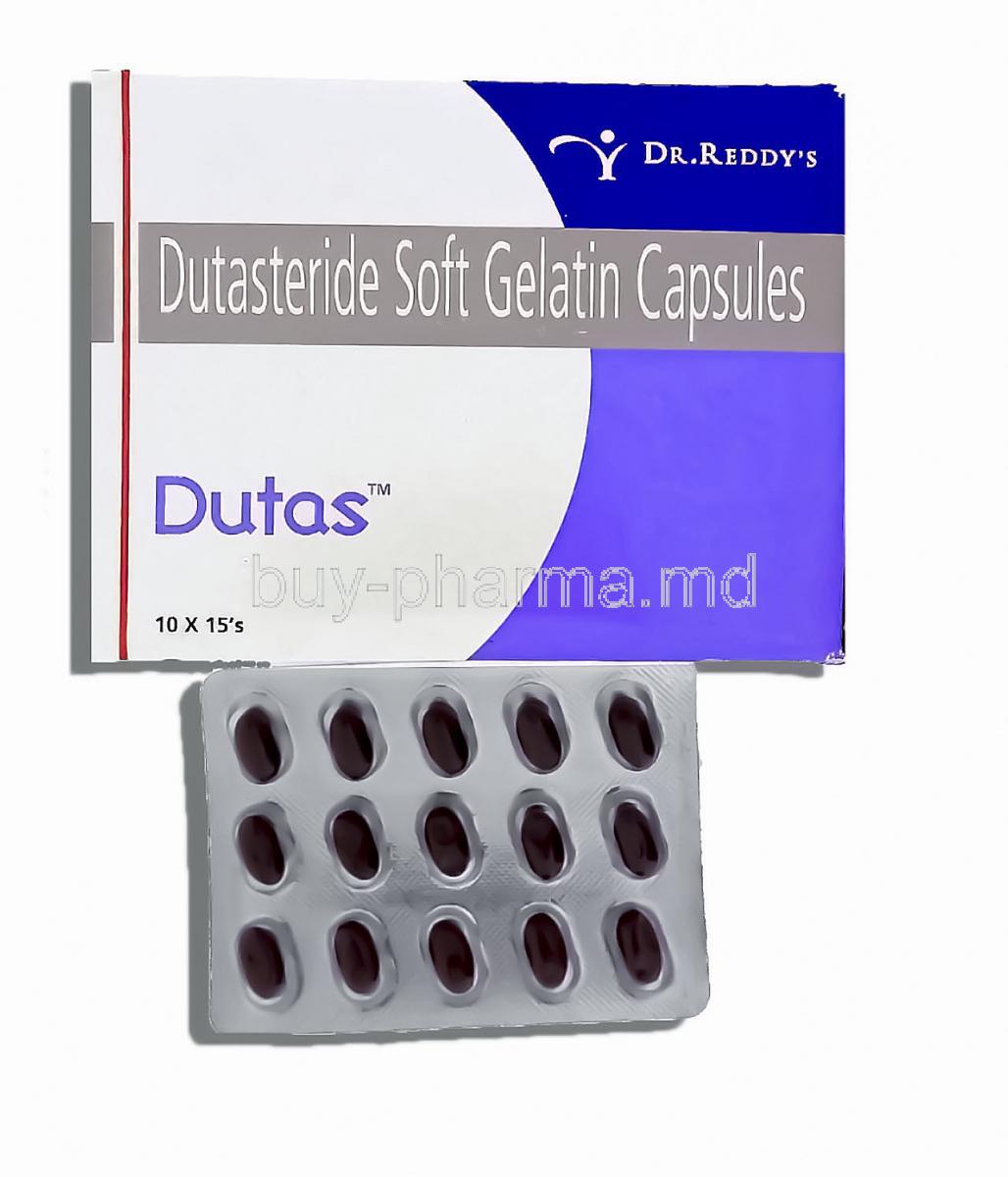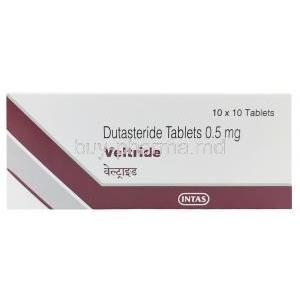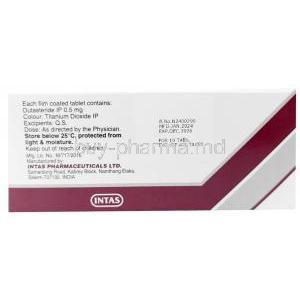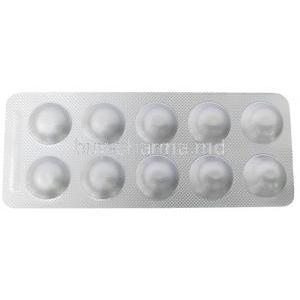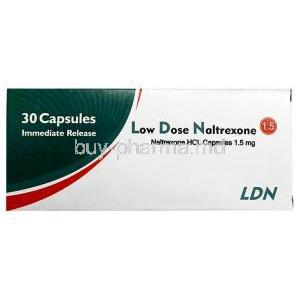It is vital to be aware of its advantages and possible risks. This comprehensive guide will provide valuable insights into this medication and help you make an informed choice.
Dutasteride primarily treats benign prostatic hyperplasia (BPH) and male pattern baldness. In this article, we'll look into the advantages of Dutasteride, its correct utilization, and how it stacks up against Finasteride - another widely used treatment.
Furthermore, we'll discuss the potential side effects of Dutasteride usage and offer guidance on managing these adverse reactions. Lastly, we'll explore alternative treatments available if Dutasteride isn't suitable for your needs.
Understanding all aspects of this medication before buying Dutasteride allows you to weigh the pros and cons confidently while ensuring optimal results from your chosen treatment plan.
Table of Contents: Buy Dutasteride
- What is Dutasteride?
- Benefits of Dutasteride
- How to Use Dutasteride
- Dutasteride vs. Finasteride
- Potential Risks and Side Effects of Dutasteride
- Managing Side Effects
- Dutasteride Alternatives
- Weighing the Pros and Cons of Dutasteride
- Buy Dutasteride
What is Dutasteride?
Dutasteride, also known by its brand name Avodart, is a medication primarily used to treat two common conditions in men: male pattern baldness (androgenetic alopecia) and benign prostatic hyperplasia (BPH), or prostate enlargement. It belongs to a class of drugs called 5-alpha-reductase inhibitors, which block the conversion of testosterone into dihydrotestosterone (DHT). DHT plays a significant role in hair loss and prostate growth.
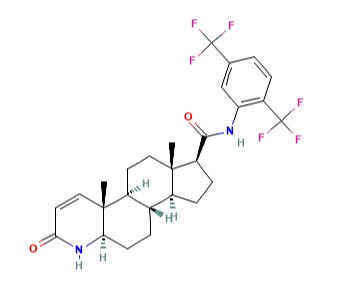
Treating Male Pattern Baldness
Male pattern baldness affects millions of men worldwide and can negatively impact self-esteem and confidence. Dutasteride has been demonstrated to be a practical approach to moderating hair loss and stimulating new hair growth for those with male baldness. Despite not being approved by the FDA for hair loss treatment, many physicians still prescribe Dutasteride due to its demonstrated effectiveness in slowing down balding and stimulating new hair growth.
Managing Benign Prostatic Hyperplasia (BPH)
BPH is a common age-related condition that causes prostate enlargement, leading to urinary issues. This condition can cause urinary symptoms such as frequent urination, difficulty starting urination, weak urine flow, and an inability to empty the bladder. By reducing the size of the enlarged prostate gland through inhibiting DHT production, Dutasteride helps alleviate these symptoms while improving the overall quality of life for patients with BPH.
Mechanism Of Action
Dutasteride functions in the body by preventing type I and II 5-alpha reductase catalysts from changing testosterone into DHT. As mentioned earlier, DHT is a hormone contributing to hair loss and prostate enlargement. By blocking this conversion process, Dutasteride helps reduce the levels of DHT in your body, leading to improved outcomes for both male pattern baldness and BPH.
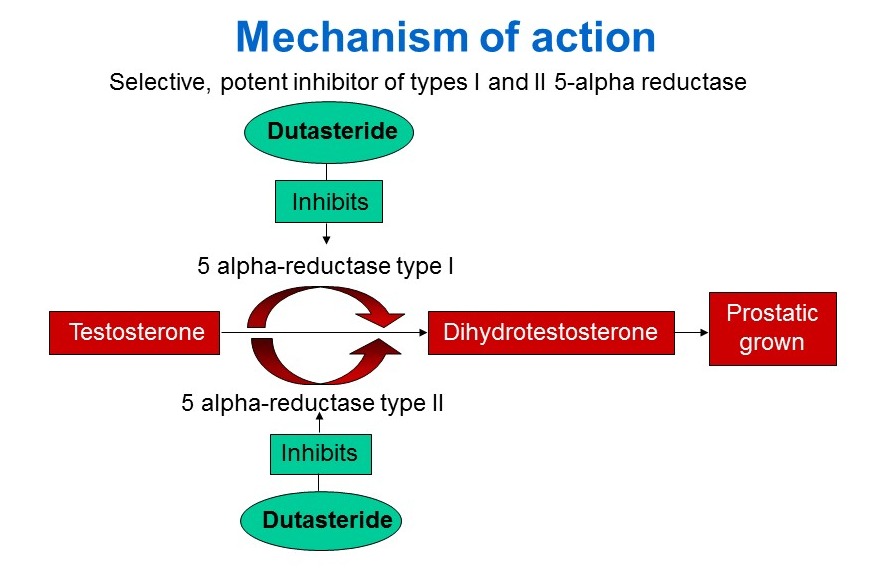
Off-Label Uses
In addition to its primary uses for treating hair loss and BPH, some studies have suggested that Dutasteride may also be beneficial in managing other conditions related to hormonal imbalances. For example, it has been explored as a potential treatment option for polycystic ovary syndrome (PCOS) due to its ability to lower androgen levels. Yet, further research is necessary before it can be advised as a usual therapy for these different issues.
If you're considering using Dutasteride for either hair loss or prostate enlargement management, it's essential to consult with your healthcare provider first. Before deciding on Dutasteride, it's necessary to consult your healthcare provider to assess the appropriateness of this medication based on individual needs and medical history.
Dutasteride is a prescription for benign prostatic hyperplasia (BPH) and male pattern baldness. After beginning treatment, it can take three to six months before any results become visible, making this a viable option for those looking to tackle their BPH or hair-thinning issues. With that in mind, let's look at the potential benefits of Dutasteride use.
Dutasteride, or Avodart, is a medication used to treat male pattern baldness and benign prostatic hyperplasia (BPH). It works by blocking the conversion of testosterone into dihydrotestosterone (DHT), contributing to hair loss and prostate growth. While it's not FDA-approved for treating hair loss, many doctors prescribe it off-label due to its proven efficacy.
Benefits of Dutasteride
Dutasteride is a versatile medication that offers numerous benefits for patients with hair loss and prostate enlargement. Its effectiveness in treating male pattern baldness, stopping hair loss, promoting hair regrowth, managing benign prostatic hyperplasia (BPH), reducing prostate size, and improving urinary symptoms is an essential treatment option for many individuals.
Treating Male Pattern Baldness
Studies have shown that Dutasteride can effectively treat male pattern baldness by inhibiting the enzyme 5-alpha reductase. This enzyme converts testosterone into dihydrotestosterone (DHT), which is responsible for shrinking hair follicles and causing hair loss. By blocking this conversion process, Dutasteride helps to prevent further hair loss and promote new growth in areas where the follicles are still active.
Stopping Hair Loss
In addition to treating existing baldness patterns, Dutasteride also works as a preventative measure against future hair loss. By maintaining lower levels of DHT in the body through consistent medication use, users can expect a significant reduction in overall shedding rates over time.
Promoting Hair Regrowth
- Follicle Stimulation: As mentioned earlier, one of the primary functions of Dutasteride is its ability to stimulate dormant or weakened follicles back into action. This increases density and thickness across previously thinning areas on the scalp.
- Hair Cycle Regulation: Research has found that Dutasteride can help regulate the growth cycle, ensuring that more hairs remain in the active growth phase (anagen) for extended periods. This leads to increased overall hair length and volume.
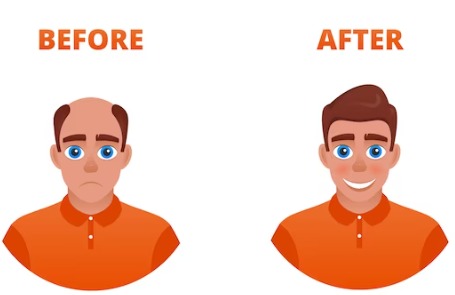
Managing Benign Prostatic Hyperplasia (BPH)
Dutasteride is also an effective treatment option for patients with benign prostatic hyperplasia or enlarged prostate. By reducing DHT levels in the body, Dutasteride helps shrink the size of the prostate gland, relieving pressure on surrounding tissues and improving urinary symptoms such as frequent urination, weak stream, and difficulty starting or stopping urination.
Reducing Prostate Size
Clinical trials have demonstrated that long-term use of Dutasteride can significantly reduce prostate volume. This reduction alleviates BPH symptoms and may lower the risk of developing acute urinary retention or requiring surgical intervention.
Improving Urinary Symptoms
The combination of reduced prostate size and improved hormonal balance brought about by Dutasteride usage results in noticeable improvements in urinary function for many BPH patients. These improvements include decreased urgency, increased flow rate, and reduce nighttime awakenings due to bladder discomfort.
The benefits of Dutasteride are numerous and can help many patients with their medical conditions. Now let's look at how to use this medication properly for optimal results.
Dutasteride is a versatile medication that effectively treats male pattern baldness, prevents hair loss, promotes hair regrowth, and manages benign prostatic hyperplasia. It works by inhibiting the enzyme 5-alpha reductase, which converts testosterone into dihydrotestosterone (DHT), responsible for shrinking hair follicles and causing hair loss while reducing prostate size and improving urinary symptoms.
How to Use Dutasteride
Dutasteride is a prescription medication that can help treat male pattern baldness and manage benign prostatic hyperplasia (BPH). To maximize the effectiveness of Dutasteride, it is essential to be aware of its recommended dosage, administration instructions, and safety measures.
Dosage and Administration
The typical dose of Dutasteride for treating hair loss is 0.5 mg per day, taken orally as a capsule. Your doctor may prescribe the same daily dose or adjust it based on your needs to manage BPH symptoms. It's crucial to follow your healthcare provider's instructions regarding dosage and never alter it without their approval.
You can take Dutasteride with or without food; however, consistency in timing helps maintain stable levels of the drug in your body. Swallow the capsule whole—do not crush or chew it—to avoid irritating your mouth or throat.
Tips for Optimal Results
- Patience: Hair regrowth takes time; you may need to use Dutasteride consistently for at least three months before noticing significant hair density and coverage improvements.
- Maintain regular appointments: Regular check-ups with your healthcare provider will help monitor progress and address any concerns promptly.
- Avoid missed doses: If you forget a dose, take it as soon as possible but skip it if closer to the next scheduled intake. Do not double up on doses to compensate for missed ones.
- Lifestyle changes: Incorporate healthy habits such as balanced dieting, exercise routines, stress management, and proper hair care to support the medication's effectiveness.
Possible Side Effects and Precautions
While Dutasteride is generally well-tolerated, some individuals may experience side effects. Common ones include decreased libido, erectile dysfunction, ejaculation disorders, and breast tenderness or enlargement. If any of these symptoms persist or worsen, it is essential to seek medical advice.
Dutasteride's rare but serious side effects can include severe allergic reactions (difficulty breathing, hives), testicular pain or swelling, prostate cancer signs (increased PSA levels), or depression. Seek immediate medical attention if you encounter these issues while taking this medication.
Dutasteride may interact with other medications, such as antifungal drugs (ketoconazole) and HIV protease inhibitors (ritonavir). Inform your doctor about all prescription and over-the-counter medications you're currently using before starting Dutasteride treatment.
Pregnant women should avoid handling crushed or broken capsules since the active ingredient can be absorbed through the skin, potentially harming an unborn baby. Additionally, blood donations from patients on Dutasteride are not accepted due to potential risks associated with its presence in donated blood supplies.
Before utilizing Dutasteride, it is essential to comprehend how to securely and viably use the medication. Ensure you thoroughly read the instructions before consuming any medicine for proper and safe use.
Dutasteride is a prescription for male pattern baldness and benign prostatic hyperplasia (BPH). It's important to follow your healthcare provider's instructions regarding dosage, take it consistently, and incorporate healthy habits for optimal results. While generally well-tolerated, some individuals may experience side effects, and pregnant women should avoid handling crushed or broken capsules.
Dutasteride vs. Finasteride
Regarding treating hair loss and benign prostatic hyperplasia (BPH), two popular medications often come up in the discussion: Dutasteride and Finasteride. Both drugs belong to a class of medications called 5-alpha-reductase inhibitors, which block the conversion of testosterone into dihydrotestosterone (DHT). Before deciding which medicine is right for you, it's essential to understand the differences between Dutasteride and Finasteride.

Comparing Dutasteride and Finasteride
The primary difference between Dutasteride and Finasteride lies in their potency. While both drugs inhibit the production of DHT, Dutasteride is known to be more potent than Finasteride due to its ability to block both types I and type II 5-alpha reductase enzymes. On the other hand, Finasteride primarily blocks only type II enzymes. As a result, studies have shown that Dutasteride can reduce serum DHT levels by up to 90%, while Finasteride achieves around a 70% reduction.
Effectiveness of Hair Loss Treatment
- Hair Growth: Several clinical trials have demonstrated that Dutasteride and Finasteride effectively promote hair growth in men with male baldness (androgenetic alopecia). However, some studies suggest that Dutasteride may be slightly more effective in promoting hair growth than Finasteride.
- Prostate Enlargement: Both medications are also approved for the treatment of BPH. They help shrink the prostate gland, improving urinary symptoms and reducing the risk of complications such as acute urinary retention or surgery. However, due to its higher potency, Dutasteride is often considered more effective in treating BPH than Finasteride.
Side Effect Profiles
Both drugs typically have mild side effects that are generally well-tolerated by most patients. Common side effects include sexual dysfunction (such as decreased libido, erectile dysfunction, and ejaculation disorders), breast tenderness or enlargement, and dizziness. Although these side effects may occur, they typically dissipate once treatment is stopped.
Although the potential risk of high-grade prostate cancer associated with 5-alpha-reductase inhibitors remains a subject of debate among researchers, it is essential to discuss any worries regarding possible risks with one's healthcare provider before beginning treatment. Patients should converse with their healthcare professionals about any apprehensions related to potential dangers before initiating treatment.
Choosing the Right Medication for You
In summary, both Dutasteride and Finasteride can effectively treat male pattern baldness and BPH; however, Dutasteride might offer slightly better results due to its higher potency at blocking DHT production. The choice between these two medications ultimately depends on individual factors such as your medical history, treatment goals, and personal preferences. Consulting your healthcare provider will help you make an informed decision based on your needs. For more information on the differences between Dutasteride and Finasteride, click here.
Regarding Dutasteride vs. Finasteride, the two medications have similar properties but may be prescribed for different conditions depending on individual needs. Before deciding which medicine is best for you, knowing the potential risks and side effects of taking Dutasteride is essential.
Dutasteride and Finasteride are 5-alpha-reductase inhibitors for treating hair loss and benign prostatic hyperplasia. Dutasteride is more potent than Finasteride, but their choice depends on individual factors such as medical history, treatment goals, and personal preferences.
Potential Risks and Side Effects of Dutasteride
It is essential to be mindful of the potential risks and side effects associated with Dutasteride, as they may range from minimal or no discomfort to more severe complications. While many patients experience minimal or no side effects, others may encounter distress or difficulties. This section will review Dutasteride's potential risks and side effects, including standard, severe but rare, and interactions with other medications.
Common Side Effects
Most people tolerate Dutasteride well; however, some may experience mild to moderate adverse effects. Commonly reported side effects include:
- Decreased libido (sexual desire)
- Erectile dysfunction
- Ejaculation disorders (such as reduced semen volume)
- Breast tenderness or enlargement (gynecomastia)
- Dizziness when standing up due to a drop in blood pressure (orthostatic hypotension)
Rare But Serious Side Effects
In addition to the more common adverse reactions mentioned above, rare but potentially severe side effects could occur while taking Dutasteride. These include:
- Allergic reactions: Symptoms such as rash, itching/swelling (especially of the face/tongue/throat), severe dizziness, or trouble breathing can indicate an allergic reaction requiring immediate medical attention.
- Persistent erection: A painful erection lasting longer than four hours (priapism) requires urgent medical intervention to prevent permanent damage to the penis.
Interactions with Other Medications
Dutasteride can interact with certain medications, which may increase your risk of side effects or reduce the effectiveness of either drug. It is crucial to inform your healthcare provider about all prescription and over-the-counter medications you are taking before starting dutasteride therapy. Some known interactions include:
- Certain blood pressure-lowering drugs (such as alpha-blockers)
- Antifungal medicines (like ketoconazole)
- HIV protease inhibitors (e.g., ritonavir)
- Macrolide antibiotics (for example, erythromycin)
In addition to these known interactions, discussing any herbal supplements or vitamins you are taking with your doctor is essential since they could also impact how Dutasteride works in your body.
To minimize potential risks and side effects associated with dutasteride treatment, always follow your healthcare provider's recommendations regarding dosage and administration. If you experience any concerning symptoms while using this medication, contact a medical professional promptly for guidance on managing adverse reactions.
Patients must know Dutasteride's potential risks and side effects to make a well-informed decision about their treatment. Let's explore how we can handle any negative responses that may come up from taking this drug.
Before buying Dutasteride, it is essential to be aware of its potential risks and side effects. Common side effects include decreased libido, erectile dysfunction, ejaculation disorders, breast tenderness or enlargement, and dizziness when standing up due to a drop in blood pressure. Rare but serious side effects may also occur, such as allergic reactions and persistent erection, requiring urgent medical intervention. Before starting dutasteride therapy, it is crucial to inform your healthcare provider about all prescription and over-the-counter medications since certain drugs can interact with them.
Managing Side Effects
As with any medication, Dutasteride may cause side effects in some patients. While most of these are mild and manageable, it's essential to be aware of them and know how to cope if they occur. This section will discuss tips for dealing with common side effects and when you should seek medical attention.
Tips for Coping with Common Side Effects
- Erectile dysfunction: If you experience difficulty achieving or maintaining an erection while taking Dutasteride, consider discussing your concerns with a healthcare professional. They can recommend potential treatments or adjustments to your medication regimen. Also, relaxation techniques like deep breathing exercises or meditation may help alleviate stress-related erectile issues.
- Decreased libido: A reduced sex drive is another possible side effect of Dutasteride use. To counteract this issue, try engaging in activities that promote intimacy and connection between you and your partner outside the bedroom - such as spending quality time together or trying new hobbies.
- Gynecomastia (breast enlargement) occurs when male breast tissue grows due to hormonal changes caused by medications like Dutasteride. Wearing loose-fitting clothing can help minimize discomfort associated with gynecomastia; however, consult your doctor about potential treatment options if symptoms become severe or persistent.
- Dizziness: Standing up slowly from sitting can reduce dizziness caused by low blood pressure related to Dutasteride use. Be sure to stay well-hydrated throughout the day by drinking plenty of water.
When to Seek Medical Attention
If any severe or persistent reactions occur while taking Dutasteride, it is essential to contact a healthcare professional right away. Some rare but severe side effects that warrant immediate medical attention include:
- Signs of an allergic reaction (e.g., hives, difficulty breathing, swelling of the face/lips/tongue/throat)
- Persistent or severe breast pain or tenderness
- Nipple discharge
- Depression or suicidal thoughts
In addition to these symptoms, contact your doctor immediately if you notice any changes in your breast tissue - such as lumps or thickening. These could be signs of a more severe condition like male breast cancer.
Interactions with Other Medications and Supplements
Dutasteride may interact with other medications and supplements you're currently taking. It's essential to disclose all prescriptions, over-the-counter medicines, vitamins, and herbal products you use to your healthcare provider before starting treatment with Dutasteride to avoid potential interactions. When taking Dutasteride, certain medications used to treat hypertension (alpha- and beta-blockers) may increase the likelihood of feeling lightheaded.
In conclusion, if you experience any side effects while taking Dutasteride, don't hesitate to contact your healthcare provider. They can help you manage your symptoms and ensure you receive the best care.
By being aware of the possible consequences of Dutasteride, you can be better equipped to handle any potential issues. Transition Sentence: With various alternatives available to treat your condition, it is essential to research all options before deciding.
Dutasteride may cause side effects such as erectile dysfunction, decreased libido, gynecomastia, and dizziness. To cope with these issues, relaxation techniques like deep breathing exercises or spending quality time with your partner can help. It's crucial to consult a healthcare provider if you experience severe or persistent side effects while taking Dutasteride.
Dutasteride Alternatives
It's important to consider other options when looking at Dutasteride for hair loss or BPH, such as medications, natural remedies, and lifestyle changes. Various alternatives to Dutasteride exist, including drugs, natural treatments, and lifestyle modifications that can help manage these conditions.
Other Medications for Hair Loss and BPH
Finasteride: Finasteride is another FDA-approved medication for male pattern baldness and BPH. It works similarly to Dutasteride by inhibiting the conversion of testosterone into dihydrotestosterone (DHT). However, there are some differences in their effectiveness and side effect profiles. Consult your doctor to determine which medication may be more suitable for you.
Minoxidil: Minoxidil is a topical solution applied directly to the scalp to stimulate hair growth. It's available over the counter without a prescription and has been proven effective in treating hair loss. Learn more about Minoxidil here.
Tamsulosin: Tamsulosin is an alpha-blocker medication prescribed primarily for managing urinary symptoms associated with BPH. Unlike Dutasteride, it doesn't shrink the prostate but helps relax muscles around it, improving urine flow. Read more about Tamsulosin here.
Natural Remedies and Lifestyle Changes
Natural remedies and lifestyle changes can help improve hair loss and BPH symptoms. These include:
- Saw Palmetto: Saw palmetto is a herbal supplement derived from the fruit of the Serenoa repens plant. It's believed to inhibit DHT production, similar to Dutasteride and Finasteride. Some studies suggest it may effectively treat BPH, but more research is needed. Learn more about saw palmetto for hair loss and its potential benefits.
- Pumpkin Seed Oil: Pumpkin seed oil contains phytosterols that may block DHT production, promoting hair growth and reducing prostate size. Despite the promising results, more research is needed to validate these effects. Discover more about the benefits of pumpkin seed oil.
- Lifestyle Changes: Maintaining a healthy diet rich in fruits, vegetables, whole grains, lean proteins, and healthy fats can contribute positively to overall health - including your hair and prostate health. Regular exercise also plays an essential role in maintaining optimal well-being.
Incorporating these alternatives into your treatment plan may provide additional benefits or services as suitable options if you're unable or unwilling to use Dutasteride due to side effects or other concerns. Consult with your medical practitioner before commencing any novel treatments or making considerable alterations to your lifestyle.
When considering other treatments instead of Dutasteride, evaluating the potential hazards and rewards each option may bring is vital. Now let's look at how you can weigh the pros and cons of Dutasteride for your treatment plan.
Before deciding to use Dutasteride for hair loss or BPH, exploring other options such as Finasteride, Minoxidil, and Tamsulosin is essential. Natural remedies like Saw Palmetto and Pumpkin Seed Oil can also help improve symptoms. Making lifestyle changes like maintaining a healthy diet and regular exercise can contribute positively to overall health.
Weighing the Pros and Cons of Dutasteride
When considering whether to use Dutasteride for hair loss or prostate enlargement, weighing the potential benefits against the possible risks and side effects is essential. We'll discuss some of its pros and cons to help you make an informed decision about using Dutasteride.

Pros of Using Dutasteride
- Treating male pattern baldness: Clinical studies have shown that Dutasteride effectively promotes hair regrowth and stops further hair loss in men with male baldness (source). This can bring a feeling of increased self-esteem and an enhanced lifestyle.
- Managing benign prostatic hyperplasia (BPH): For men suffering from BPH, Dutasteride has been proven to reduce prostate size, alleviate urinary symptoms, and decrease the risk of acute urinary retention (source). By reducing prostate size and alleviating urinary symptoms, Dutasteride can help improve the quality of life for BPH sufferers.
- Dual-action treatment: Unlike other medications like Finasteride which only inhibit one type of enzyme responsible for DHT production, Dutasteride inhibits both types. This results in a more significant reduction in DHT levels within the body (source), potentially leading to improved outcomes when treating hair loss or BPH.
Cons of Using Dutasteride
- Side effects: As with any medication, there are potential side effects associated with Dutasteride use. Common side effects include sexual dysfunction (such as decreased libido and erectile dysfunction), breast tenderness or enlargement, and dizziness (source). Talking about these dangers with your healthcare provider before beginning therapy is critical.
- Pregnancy risk: Pregnant women should avoid contact with Dutasteride capsules as the active ingredient can be absorbed through the skin and may cause birth defects in male fetuses (source). Men taking this medication should also exercise caution when engaging in activities that could lead to exposure for pregnant partners.
- Long-term commitment: To maintain the benefits of hair regrowth or BPH symptom improvement, it is necessary to continue using Dutasteride indefinitely. Discontinuing treatment will likely result in a reversal of gains within several months (source). This long-term commitment may not be suitable for all patients.
In conclusion, weighing the pros and cons of using Dutasteride depends on individual circumstances, such as personal preferences, health conditions, and lifestyle factors. It's crucial to consult your healthcare provider before deciding whether this medication is proper for you. They can help assess your situation while considering other alternative treatments.
Dutasteride is used to treat male pattern baldness and benign prostatic hyperplasia. It inhibits both types of enzymes responsible for DHT production, resulting in more significant reductions in DHT levels within the body. However, it has potential side effects like sexual dysfunction and breast tenderness/enlargement. Pregnant women should avoid contact with Dutasteride capsules due to the risk of birth defects in male fetuses.
Buy Dutasteride
Dutasteride is a medication that can help manage hair loss and prostate issues. It works by inhibiting the production of DHT, a hormone that contributes to these problems. Although some potential dangers and reactions are connected to this drug, many individuals find it an effective remedy for their requirements.
Before buying Dutasteride, it's essential to consider the potential benefits and risks. You should also talk to your doctor about any concerns and ensure this medication is proper.
If you're ready to purchase Dutasteride online from a reputable source, Buy-Pharma.md has what you need. Click here to get started!
Dutasteride FAQ
Can Dutasteride cause hair loss?
Dutasteride isn't touted as a magical solution for regaining lost locks--rather it functions as a tool for halting further hair loss from occurring. By curbing the production of the hormone responsible for male or female pattern baldness (androgenetic alopecia) this medication can positively impact those struggling with this particular issue. In rare instances though some individuals might initially experience more pronounced shedding while taking Dutasteride; however this should resolve itself over time once they regularly take their medication.1103

